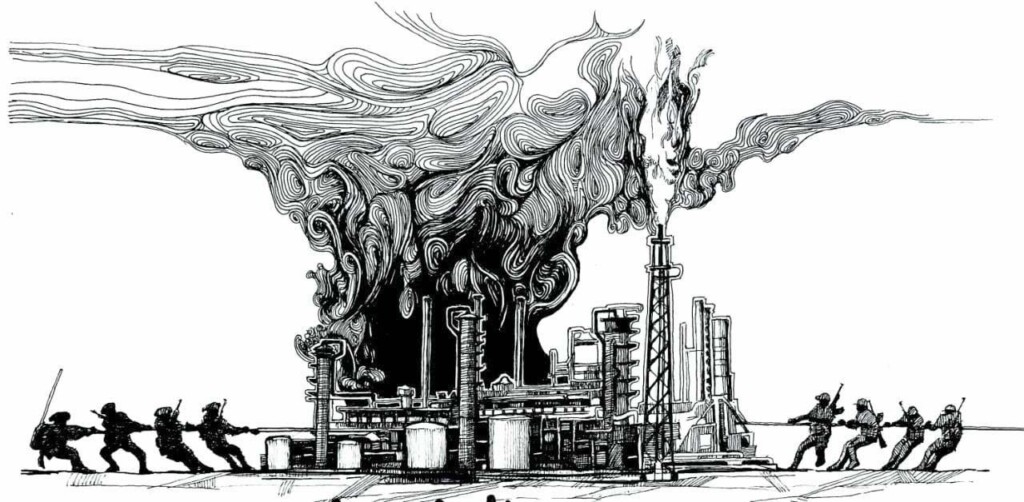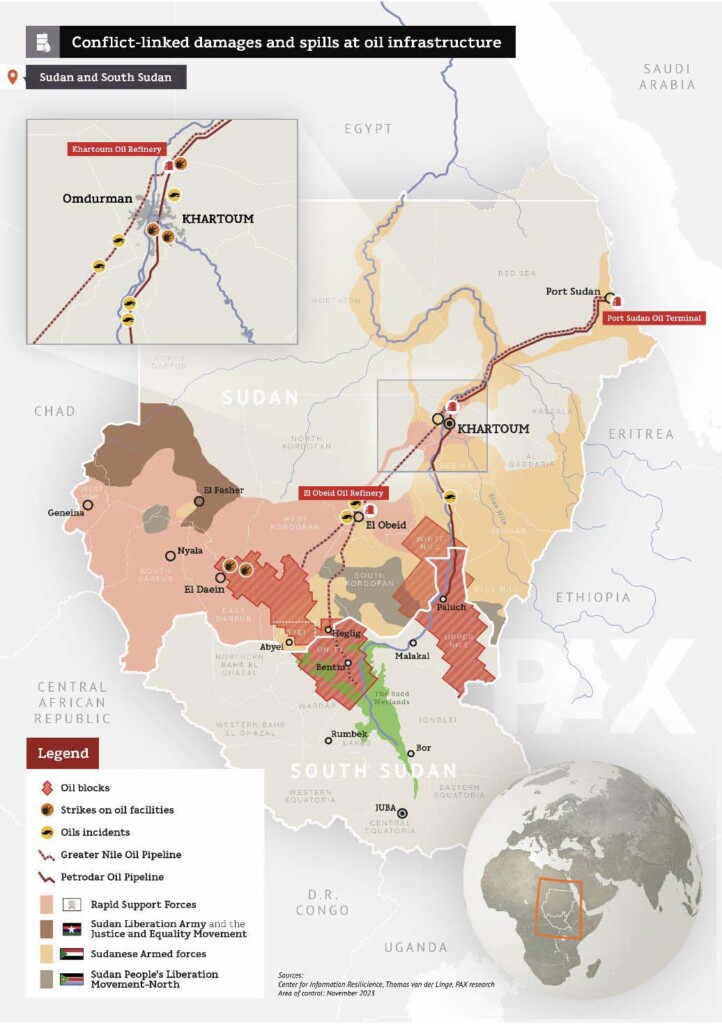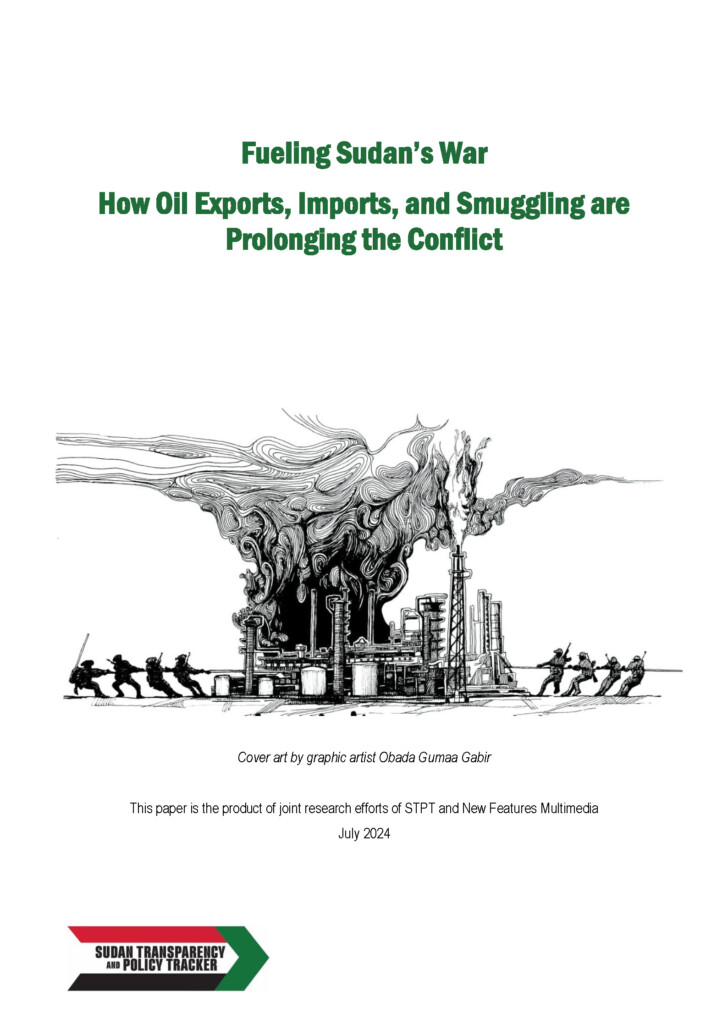‘Oil exports, imports, smuggling prolong Sudan conflict’

Cover art for Fuelling Sudan's War (Obada Gumaa Gabir / STPT)
The initial stages of the war that erupted in mid-April 2023 between Sudanese Armed Forces (SAF) and the paramilitary Rapid Support Forces (RSF), left vital parts of Sudan’s oil infrastructure under the respective control of each party. Initially, both were careful to avoid damaging essential oil infrastructure, however, a report released this week suggests that the SAF and RSF then began attacking each other’s points of access to fuel to undermine the revenues and logistical advantage they could draw, and now oil exports, imports, and smuggling are prolonging the conflict.
A new paper entitled Fueling Sudan’s War, published this week as product of joint research efforts of the Sudan Transparency and Policy Tracker (STPT) and New Features Multimedia, says that this has led to the gradual disruption of the flow of oil, further accelerating the collapse of the Sudanese economy. At the same time has created “a new pillar of the war economy: the importation of oil”, the report suggests. “Controlled by a small group, this importation allows for vast profits in light of the need for oil while at the same time driving up prices with devastating consequences for other sectors, especially food.”
Sudan’s oil fields, pumping stations, and parts of the pipeline sending oil from South Sudan fell into the hands of the RSF early in the conflict, while the SAF maintained control over the export terminal in Port Sudan and parts of the pipeline in areas it controls.

However, for months after the war began, the belligerents appeared keen to spare oil infrastructure, even as attacks on other sectors continued. The war left vital parts of the oil infrastructure under the respective control of each party, meaning that both could only continue to profit if the system was left in place, and they minimised intentional damage to it. Another reason, the report proffers, is that the government of South Sudan, which depends on pipelines in Sudan for the export of its oil production to international markets, reportedly incentivised and pressured the belligerents to safeguard the pipelines and pumping stations that maintain the flow of its oil to Port Sudan.
“Nonetheless, this transactional arrangement did not last long and the SAF and RSF began attacking each other’s points of access to fuel to undermine the revenues and logistical advantage they could draw. RSF attacked and destroyed large fuel depots in the capital and other cities with airports that could serve as alternate military airports. Fighting in RSF areas led to serious breaches in the pipeline, causing large spills visible in satellite imagery.”
The report acknowledges that “damage was probably exacerbated by compounded decades of neglect in the maintenance of the oil infrastructure. Technical teams lack access to fix breaches and repair damage to pumping units.”
The new report details how oil exports, imports, and smuggling are prolonging the conflict.












 and then
and then